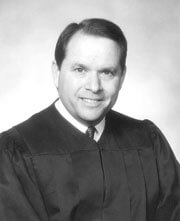Federal court faults high school that blocked anti–gay comments
A federal court ruled on December 5 that public school officials in Ann Arbor, Michigan, violated the rights of a high school senior by censoring her “Diversity Week” speech to remove religious condemnation of homosexuality, and by rejecting her request to include a speaker with a negative view of homosexuality in a school-sponsored panel discussion by clergy on the subject of homosexuality and religion.
The controversy arose out of a decision by school administrators to allow the Pioneer High School’s Gay Straight Alliance (GSA) and its two out gay faculty advisors to organize the sexual orientation panel discussion to be held during the school’s annual Diversity Week program. The panel was open to all students, but not mandatory. During the past several years, Diversity Week had included three panel discussion sessions, one each devoted to race, religion, and sexual orientation, and the panelists were usually students. The GSA members and their advisors thought that because public anti-gay statements frequently come from religious authorities, it would be useful to put together a panel consisting entirely of “gay-positive” clergy, rather than students.
At a student planning meeting for Diversity Week, GSA members announced their interest in combining sexual orientation and religion in one panel to discuss religious views of homosexuality. Elizabeth Hansen, a member of the school’s Pioneers for Christ (PFC) organization and a devout Roman Catholic, indicated her interest in participating, which did not meet resistance at that time, and a faculty member invited her to submit the names of clergy to be considered for the panel. Subsequently, however, GSA informed administrators that their idea for the panel was to show that religion was not necessarily hostile to homosexuality, and they believed Hansen’s designee would detract from that message. Though one administrator warned that Hansen had a “legal right” to have her viewpoint represented, a compromise was reached in which she was not allowed to designate a clergy member for the panel, but was allowed to speak to a student assembly. However, a faculty member insisted that anti-gay content be struck from the draft of her remarks, to which Hansen acquiesced. Shortly after her graduation, however, her parents and others joined her in filing a lawsuit against the school district, claiming that her constitutional rights were violated.
Hansen contended that the school’s exclusion of her viewpoint from the sexual orientation and religion panel violated the her freedom of speech, as did its censorship of her Diversity Week speech. She also claimed that the GSA’s panel violated the Establishment Clause of the First Amendment, by placing the school’s imprimatur on one particular religious viewpoint of homosexuality, and that the school’s actions with respect to her also violated her First Amendment right to free exercise of religion. Several parent plaintiffs also claimed that their constitutional rights to control the upbringing of their children were violated by the high school’s presentation of this one-sided Diversity Day program on homosexuality.
Rosen rejected the free exercise and parental rights arguments, but found sufficient merit to the other arguments to grant summary judgment in favor of the plaintiffs on those points. Indeed, Rosen found that the relevant law is so clearly established that the school officials sued could not claim “qualified immunity” from personal liability, since an administrator had warned them about Hansen’s rights.
Hansen and the other plaintiffs argued that their free speech claims should be analyzed in the context of ruling related to political demonstrations. Under Supreme Court precedent dating back to the Vietnam War era, students have a First Amendment right to speak on political topics at school, subject only to the school’s right to stifle student speech that would disrupt the educational mission of the school.
The defendants, in contrast, argued that the Diversity Week program involves student speech presented with the imprimatur or sponsorship of the school. In such cases, the school may make restrictions of a content-neutral nature consistent with its pedagogical mission, such as excluding subjects that are “off topic” or distracting from or disruptive of the main purpose of the activity. There is division among the lower federal courts on this point, but a majority, including the 6th Circuit Court of Appeals whose jurisdiction includes Michigan, have ruled that school motivations for restricting speech in this category must be “content-neutral.”
Rosen felt that the defendants’ argument more closely approximated the nature of the speech in question, but found that the school failed to show content-neutral reasons for excluding Hansen’s viewpoint from the panel or for censoring her own speech. The school argued that they were trying to keep both of these presentations “on topic,” and that Hansen’s viewpoint would be “off topic.” Rosen was not buying that argument, finding that both the censorship and the exclusion were motivated by administrators’ opposition to Hansen’s viewpoint, and not purely pedagogical concerns.
Rosen found one of the school’s defenses particularly risible––that the school was trying to promote respect for minority viewpoints, which would be undermined by including the anti-gay religious viewpoint.
“That Defendants can say with apparent sincerity that they were advancing the goal of promoting ‘acceptance and tolerance for minority points of view’ by their demonstrated intolerance for a viewpoint that was not consistent with their own is hardly worthy of serious comment,” he wrote. Rosen also rejected the argument that the school district could censor anti-gay voices in order to “provide a safe and supportive environment for gay and lesbian students,” stating that the district had failed to show that gays would feel less safe or supported if one out of the half dozen clerics on a panel disagreed with the others and stated that homosexual conduct is sinful. Rosen contended that the administrators, no matter how well intentioned, were aiming to establish a harmful precedent.
“The danger in this is quite evident,” he wrote, “and it is a danger that would jeopardize the rights of not only PFC members, but equally (and, perhaps, more so) the rights of gays, lesbians and other groups. As the Court pointed out at oral argument, if schools are permitted to stifle opposing viewpoints in the manner done here, what is to prevent school administrators in other districts where there are, perhaps groups strongly rooted in the community who are opposed to gay rights on religious (or other) grounds, from holding a school forum on homosexuality and religion and refusing to permit a more gay-friendly message to be presented.”
Given these sentiments, it is not surprising that Rosen also found an Establishment Clause violation by the school authorizing a panel of clergy members that excluded the PFC viewpoint. Government is supposed to be neutral as between different religious points of view, according to Rosen’s reading of the Supreme Court precedents, and this presentation was decidedly not neutral, but rather intended to send a particular religious message.
The plaintiffs were not seeking more than nominal damages in this case, but the loss may prove costly to the Ann Arbor public schools nonetheless, since Rosen concluded that because the plaintiffs had prevailed on an action for violation of their civil rights, they will be entitled to their costs and reasonable attorneys fees. In light of the lengthy depositions that were conducted and the exhaustive briefing of the legal issues in a case that went on for more than a year, the legal fees alone are likely to add up to a considerable sum.
The plaintiffs were represented by the Thomas More Center for Law and Justice, a religious public interest law firm that specializes in litigating over issues of religious freedom.
——————————————————————–
Arthur S. Leonard is a professor at New York Law School
and editor of Lesbian/Gay Law Notes.


































